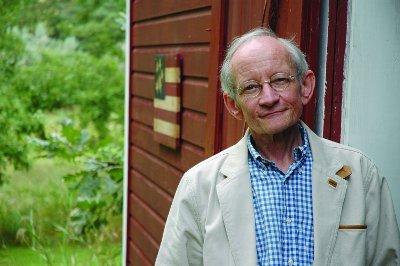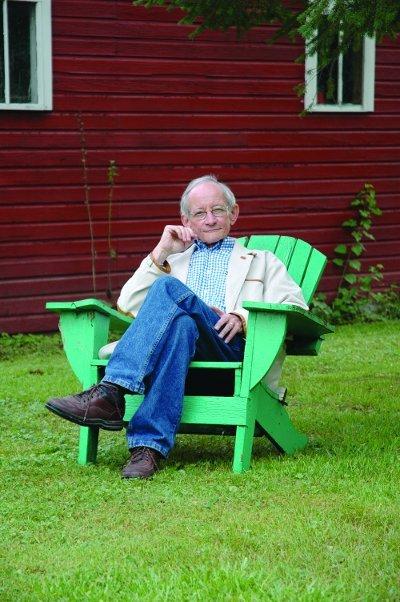AMERICAN SNIPER (Rated R)
As a director, Clint Eastwood’s best work is arguably realized in bringing the story of a true American hero, a former Navy SEAL who devoted his military career to saving the lives of fellow soldiers on the battlefield, to the big screen in “American Sniper.”
The Oscar-nominated film’s screenplay is based upon the runaway bestselling autobiography of Chris Kyle, the U.S. military’s all-time sharpshooter, a man who racked up more than 160 confirmed sniper kills in four tours of duty in the Iraq war following the terror attacks of 9/11.
Portrayed by actor Bradley Cooper, Chris Kyle is first seen positioned with rifle in hand on a rooftop in a small Iraqi town, watching a deserted street as U.S. armed forces approach on foot and in tanks.
Suddenly a woman and young boy appear, looking suspiciously like insurgents ready to detonate an improvised explosive device.
Tension mounts as Chris sizes up the situation, being mindful that the misstep of killing civilians could land him in a federal penitentiary, as his commanding officer cautions him. Still, he can’t risk the lives of his fellow soldiers depending on him to provide safe passage.
This powerful scene sets the tone for a suspenseful film.
Waiting in the hot desert sun allows plenty of time for flashbacks.
After the tense opening, we get a quality glimpse into the formative years of this heroic American soldier, going back to his youth when he learned to shoot with precision and discovered his role in life would be that of the protector, an instinct that carried through his military career.
The fact that Chris volunteered for subsequent tours in war-torn Iraq did not go unnoticed. Chris’ reputation caught the attention of film producers Peter Morgan and Andrew Lazar.
Morgan noted, “We heard about all his accolades as a Navy SEAL and obviously knew what a great patriot he was.”
And yet, the producers learned that there was more to Chris Kyle, raised in rural Texas, than his faithful adherence to the code of “God, Country and Family.”
Sure, Morgan knew of his heroism, but said that “the more we delved, what kept coming across was what a genuinely good person he was … how loved and admired he was by his family, friends and those who served alongside him.”
Normally, I wouldn’t quote film producers extensively, or even at all, but the flavor of what they could see in the titular character is that the faith, belief system and patriotism of Chris Kyle was genuine and grounded in his humble upbringing. All that, and the love of a good woman, was a compelling reason for Chris’ sense of purpose.
During his training, Chris meets his future wife Taya (Sienna Miller). It’s an uneasy courtship at first.
Not surprisingly, Taya is wary of an emotional commitment with a soldier ready to be shipped out for another tour of duty.
But love prevails, and while Chris and Taya start a family, their relationship gets tested by his willingness to keep returning to the battlefield.
Events on the front lines are marked by a number of rough circumstances, including enhanced interrogation techniques that deliver vital intelligence. War is a tough business.
As good as he is, the good soldier Chris is unable to prevent every ambush. There is plenty of pain in the loss of fellow soldiers in the heat of battle.
While Chris and the rest of the military are presented in a favorable light, there is no sense here that “American Sniper” is turning the Iraq War into a celebration of gung-ho American valor that marked most films set in World War II.
On the other hand, it clearly demonstrates that the Americans were up against savage and brutal enemy forces, not unlike what we face now with the vicious, cutthroat ISIS, or if you will ISIL, terrorists.
As Chris moves into his third and fourth tours of duty, the fighting has only gotten more difficult.
Al-Qaeda has placed a bounty on Chris’ head. An elusive enemy by the name of Mustafa (Sammy Sheik) is an Olympic medal-winning sharpshooter whose skill has raised the stakes in a terrifying manhunt.
Things also get messy when a fellow soldier is killed in a raid, and Chris returns home to attend the funeral.
Chris’ loyalty to his buddies and his commitment to service leads to more conflict on the home front. After his final tour, Chris faces a troubling period of adjustment.
In the making of “American Sniper,” Clint Eastwood relies on plenty of intense action to move the story.
One very powerful scene is when Chris and his comrades, during the midst of a sandstorm, appear trapped in an ambush before managing an escape.
But the auteur director puts a lot of stock in the development of personal relationships, whether it involves Chris with his wife or his brothers in arms.
Moreover, he doesn’t shy away from the psychological toll that multiple tours and absence from family have on Chris.
Sadly, “American Sniper’ comes to a tragic ending, and though little is revealed about the valiant soldier’s demise after his retirement, the film’s most moving footage involves the tribute that ordinary Americans paid to a true hero during the funeral procession.
Rolling out wide this month, “American Sniper” is one of the best films of 2014.
Tim Riley writes film and television reviews for Lake County News.










